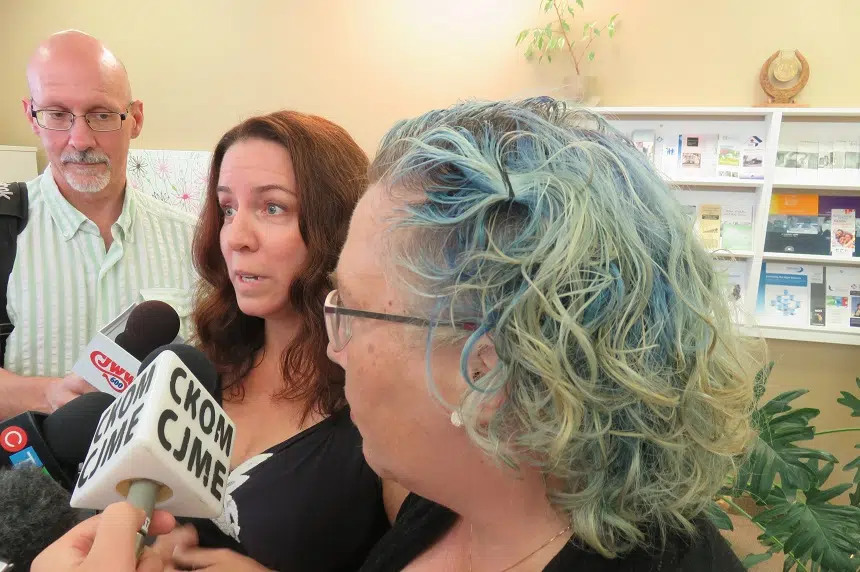The Saskatchewan NDP is calling on the provincial government to improve supports for mental health patients and reduce overcrowding in treatment facilities.
Health Critic Danielle Chartier spoke to reporters at her constituency office Thursday, saying the Irene and Leslie Dubé Centre for Mental Health at Saskatoon’s Royal University Hospital (RUH) has been overcrowded with patients for the past three years.
“This Sask. Party government is doing a lousy job supporting people living with mental health concerns, and we have to do better,” she said.
Deputy health minister Max Hendricks confirmed in a May 9 committee meeting that the Dubé Centre has operated at an average of about 104 per cent capacity for the last three years.
The Dubé Centre has 54 adult beds and another 10 for children.
In another debate on May 24, Hendricks said over-capacity issues at the Dubé Centre often see some “stable” patients given temporary beds in the basement where electro-convulsive therapy (ECT) is normally provided.
Candace Middleton, 42, was one of those patients.
She has lived with bipolar disorder for 20 years, and was admitted to RUH for treatment in December. However, there was no room for her in the Dubé Centre.
Middleton was eventually placed in the ECT room with several other patients as a temporary option, because the hospital wouldn’t discharge her.
“We were not treated as the other patients are treated,” she said, standing alongside Chartier.
She said they were forced to wake up at 5:30 a.m. so staff could clear the area and prepare it for patients who needed ECT, and they weren’t allowed to go to sleep until late in the night.
“After a few weeks of lack of sleep, it plays on our mental health,” she said. “(Our mental health) is an issue, which is why we’re there … it’s kind of a spiral situation.”
Middleton said she didn’t feel her situation had improved by the time she was discharged, despite spending nine weeks at the centre.
Chartier said there needs to be more access to mental health care to prevent similar situations.
She noted there’s no “silver bullet solution,” but suggested moving children to an integrated mental health care space to open up more beds for adults.
More spending in relation to the health budget would also improve the situation, she said.
“Reality is mental health is health care, full stop,” she said.
“Even with federal dollars, we’re only at five per cent of spending of health dollars spent on mental health. The average in Canada is seven per cent.”
However, Chartier noted the money needs to be spent wisely.
“It’s not just about throwing money at the problem, but about spending those resources in the right way and making sure people have the care they need,” she said.
“People like Candace … deserve better.”







